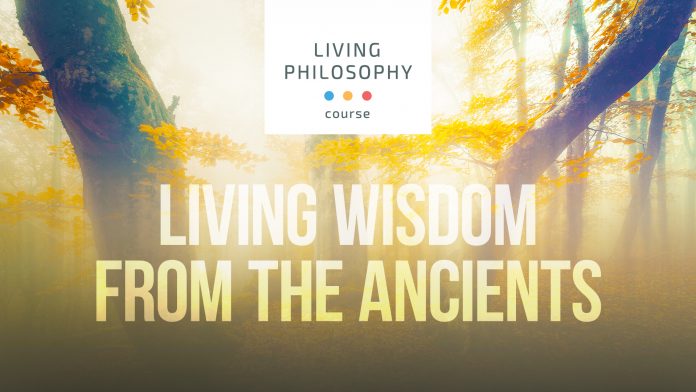A Nova Acrópole Oeiras-Cascais promove mais um CURSO DE FILOSOFIA PRÁTICA, desta vez com aulas em inglês. O curso arranca no próximo dia 9 de novembro das 18h30 às 20h30, com uma aula aberta.
A Inscrição pode ser feita no formulário: https://bit.ly/3mkAvbn. O curso acontecerá via plataforma Zoom. No entanto, assim que for possível, as aulas serão exclusivamente presenciais no centro de Oeiras .
- Curso em 23 sessões, segundas-feiras, das 18h30 às 20h30
- Participação: 60 € (possibilidade de pagamento em duas prestações. A primeira na inscrição, e a segunda no mês seguinte)
- Para informações em inglês sobre o programa do curso e inscrição : https://bit.ly/3mkAvbn
- Pagamento por transferência para este NIB da Nova Acrópole:
0045 5492 4029 1166 0659 8
— LIVING PHILOSOPHY COURSE —
“Philosophy means love of wisdom (philo-sophia) and is an active attitude of awareness towards life. In this sense, we are all born philosophers, with an innate need to ask questions and with the intuition that there are answers to be found.
Every civilisation has passed on to us its knowledge and experience of the essential laws of life. A systematic and comparative study of this vast heritage enables us to discover the universal and timeless ideas that have formed characters, shaped visions of the future and helped men and women to meet the challenges of their time.”
PROGRAMME:
— Ethics and Values: Strengthening Oneself
1 – Natural Philosophy:
The seven principles of Nature.
How to recognize and develop human values.
2 – The Human Being and the Cosmos:
Understanding the consequences of our behaviour.
Dharma-Karma. theory of reincarnation.
3 & 4 – India and the teachings of the Bhagavad Gita.
Decision and action – how to resolve one’s inner battles.
5 – Tibetan wisdom:
Ancient tibetan texts: The Voice of Silence.
The value of introspection and reflection.
6 – Buddhist Philosophy:
The relationship between suffering and consciousness.
Crisis as an opportunity for growth.
7 – The wisdom of China:
The teachings of Confucius.
Ethics at a collective level.
— To Embetter Human Relationships
8 – The challenges of living in society: the human factor.
The problems of the world and of the current human being.
9 – The myth of Plato’s Cave: keys to understanding it.
10 – Aristotle and the way to happiness.
11– Plotinus and the neoplatonic school.
The eclectic school of Alexandria.
12– The importance of Education: The Citizen and his role.
To know how to think, to know how to choose.
13 – Egypt: the rule of Maat.
Justice as a collective drive.
14 – Stoicism: Epictetus, Seneca and Marcus Aurelius.
Rome and the Citizens of the world.
— Building the Future
15 – Philosophy of History:
Experience as the driving force of the future.
16 – The importance of transmission.
History: sources, fundamentals and complementary sciences
17 – History and mythology: the psychological reality of Myths.
Characteristics of symbology.
18 – The cycles and evolution of History: the path of mankind and the wheel of history.
19 – Freedom and destiny: historic theory of Cicerus.
Fixed archetypes and the evolution of mankind. How to get out of immediacy and play an active role in creating the future.
20 – Kant: Fundamental Principles of the Metaphysics of Morals.
The categorical imperative. Good will and the spirit of being a volunteer and a disciple.
21 to 23 – Revision of the course’s concepts. Practical psychological exercises




